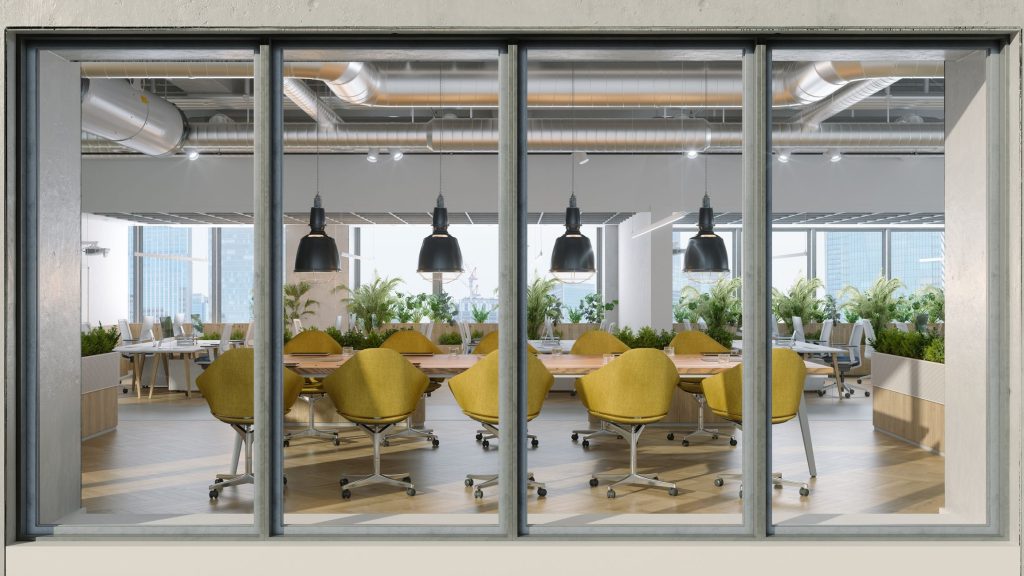Creating workspaces for a fast-changing world: Turner & Townsend unveils its global corporate occupier fit-out report, offering a deep dive into regional innovations, corporate fit-out trends, and cost granularity for key occupier markets, including Dubai.
Turner & Townsend, a leading global professional services company in the construction industry, has released its latest Global Corporate Occupier Fit-Out Report, offering a comprehensive analysis of fit-out costs across forty-two cities worldwide. The report highlights the diverse cost landscapes of the sector across global hubs, with an average high specification cost for fit-out expenses estimated in Dubai at $2,548 per m2 and Riyadh at $2,650 per m2.
European cities, including Zurich, London, and Edinburgh, grapple with cost challenges influenced by supply chain disruptions, further compounded by recent global conflicts. Despite the volatility of Brexit, London continues as a significant hub for high-end fit-out activities, especially within the financial sector.
In the Asia-Pacific region, increased demand for high-specification fit-outs stems from the concentration of global organisations in pivotal markets such as Tokyo, Sydney, and Singapore. These evolving demand patterns and cost dynamics underscore the changing nature of work structures, leading to adaptable decision-making cycles and shorter lease durations every five to eight years.
The report identifies a noticeable shift in investment patterns, aligning with employee preferences that favour collaborative spaces and home-like amenities. Furthermore, in pursuit of environmental, social, and governance (ESG) goals, tenants are expected to opt for spaces directly from property owners to minimise negative environmental impacts linked to generic CAT A fit-outs.
In the Middle East, a region known for its ambition and growth, the corporate occupier fit-out market is experiencing a significant surge in activity. The growing demand for innovative, sustainable workspace solutions is reshaping business operations here and elevating work environments.
The region is now emerging as a leader in redefining contemporary workplaces, emphasising innovation and adaptability, with recent forecasts from Globest.com predicting a shift in office design from 70 percent individual workstations and 30 percent collaborative spaces, to 70 percent collaborative spaces by 2025.
The UAE’s fit-out industry stands out as one of the GCC’s fastest-growing sectors. With the UAE’s commercial interior fit-out market valued at $1,486.21 million in 2021, and with an expected 9.31 percent growth from 2023 to 2027 indicating a thriving market landscape. Amidst this rapid growth, there are collaborations, partnerships, and investments driving innovation to meet evolving business demands.
Companies across industries are increasingly investing in fit-out solutions that are in line with their brand identity and operational needs, fostering conducive workspaces that prioritise productivity, collaboration, and employee well-being.
This burgeoning trend has propelled regional design and construction firms to innovate, offering innovative solutions blending aesthetics with functionality. From sleek, modern designs to environmentally conscious spaces, the focus remains on crafting work environments reflecting corporate ethos while optimising space and resources.
Furthermore, technology’s transformative impact on workspace design cannot be overlooked. Integrating smart technologies, IoT-enabled systems, and sustainable practices has become characteristic of corporate fit-outs in the Middle East, enabling businesses to optimise energy usage and create agile work environments
John Grant, Associate Director and Corporate Real Estate Services Lead at Turner & Townsend in Dubai, notes the Middle East’s significant shift in its corporate landscape, following the COVID-19 pandemic – the initial catalyst which prompted a world-wide re-evaluation of office projects.
As remote work became the norm, cities like Dubai, Abu Dhabi, Riyadh, and Doha experienced a decline in office space demand, causing a temporary slowdown in the corporate occupier fit-out sector. However, with relaxed social distancing regulations, office fit-out projects regained momentum, with a clear, new-found demand for hybrid working environments and flexible, technology-integrated, employee-centric designs.
John Grant comments:
“The Middle East corporate occupier fit-out market embodies the convergence of innovation and functionality.”
“As businesses adapt to evolving landscapes, the fit-out market stands as a testament to the region’s commitment to progressive workspace solutions, fostering an exciting era for redefining spaces that focus on productivity, efficiency, and well-being, and which have a direct, positive impact on business bottom-line.
“Our focus is to work in partnership with our clients to craft tailored environments that seamlessly align with their evolving needs and aspirations.”

